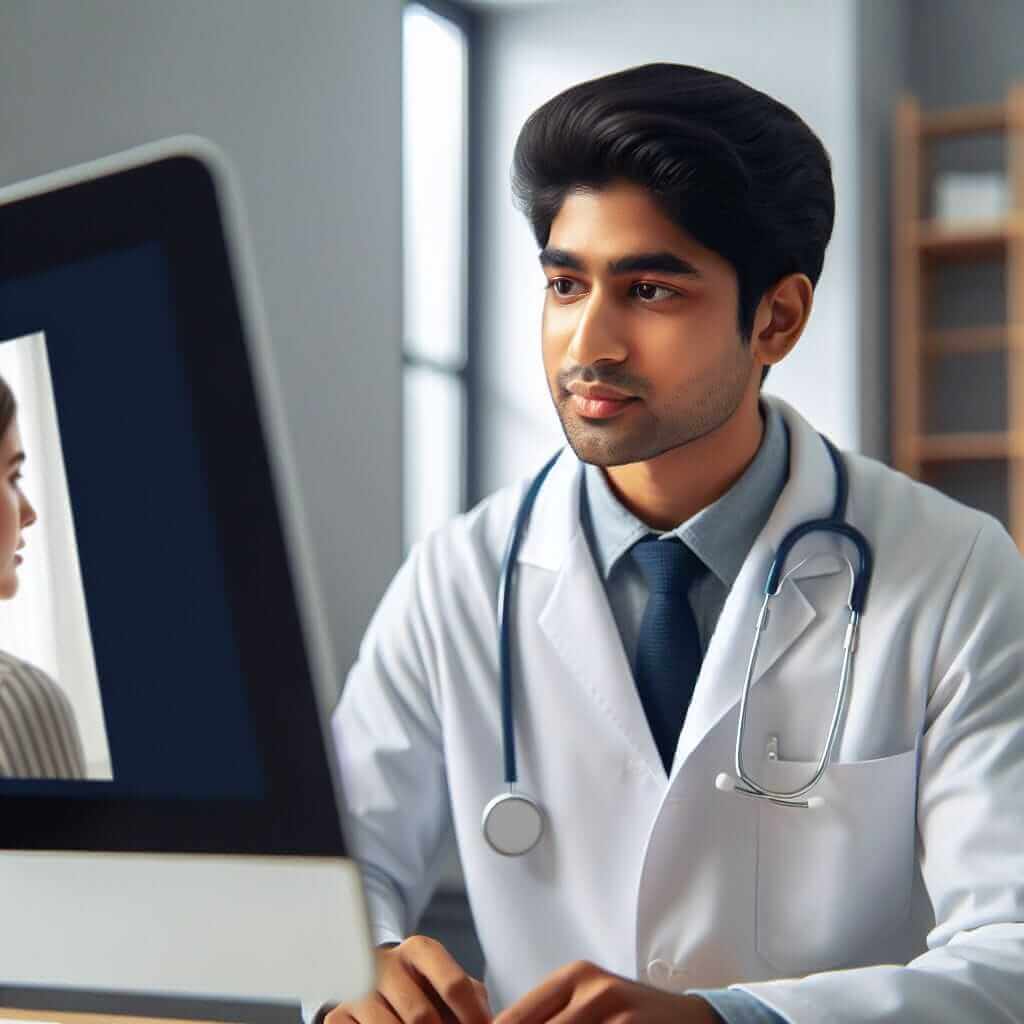The topic “The impact of technological innovation on healthcare access” is increasingly relevant given the continual advancement in technology and its profound implications on various sectors, notably healthcare. With frequent appearances in the IELTS Writing Task 2, it serves as a fertile ground for candidates to explore various dimensions of this pivotal issue.
Possible essay prompts include:
- To what extent do you agree or disagree with the statement: “Technological innovations have significantly improved access to healthcare services”?
- Discuss both views and give your opinion: “Some people believe that technology has improved healthcare access tremendously, while others argue that it has widened the gap between different socioeconomic groups.”
- Evaluate the positive and negative effects of technological advancements on healthcare access.
Main Content
Chosen Prompt and Analysis
Prompt:
To what extent do you agree or disagree with the statement: “Technological innovations have significantly improved access to healthcare services”?
Analysis:
This is an opinion essay where you need to present your stance regarding the significant improvements technological innovations have made in healthcare access. You must provide compelling arguments and examples to support your viewpoint.
Model Essay
Technological innovations have undeniably reshaped many industries, and healthcare is no exception. While it can be argued that these advancements have considerably enhanced healthcare access, it is essential to explore both the positive impacts and the limitations to provide a balanced perspective.
First and foremost, technological innovations have optimally broadened healthcare access through telemedicine, wearable technology, and AI-based diagnostic tools. Telemedicine allows patients in remote areas to consult with specialists worldwide, eliminating geographical barriers. For instance, a patient in a rural village can receive expert consultation from a doctor in a metropolitan hospital via video conferencing. This bridge, facilitated by technology, ensures that quality healthcare is not an urban privilege but a universally accessible service.

Moreover, wearable technology such as fitness trackers and smartwatches plays a crucial role in preventive healthcare. These devices continuously monitor vital statistics, alerting users to potential health issues before they become severe. Consequently, early detection and intervention are possible, significantly improving health outcomes and reducing the need for hospital visits.
AI-based diagnostic tools have further revolutionized healthcare with their precision and efficiency. These technologies can analyze vast amounts of medical data swiftly, providing doctors with critical insights and aiding in accurate diagnosis. For example, AI algorithms can detect anomalies in medical images more reliably than human eyes, which accelerates the treatment process and enhances patient care.
However, the benefits of technological innovations are not ubiquitously experienced. The digital divide remains a significant barrier, particularly in developing countries where internet connectivity and access to advanced technologies are limited. Consequently, while telemedicine and AI tools are game-changers for some, they are out of reach for others, potentially exacerbating healthcare disparities.
Additionally, there are concerns about data privacy and security in an era where health information is increasingly digitized and connected. The risk of data breaches can undermine patients’ trust in technological solutions, which poses a challenge to the broad adoption of these innovations.
In conclusion, while technological innovations have substantially improved healthcare access for many, it is crucial to address the existing disparities and concerns to ensure equitable benefits. Comprehensive strategies that include infrastructure development, education, and robust data protection measures are essential for leveraging these advancements to their fullest potential.
Word count: 349
Writing Tips
- Thesis Statement: Clearly state your position in the introduction and reiterate it in the conclusion to provide coherence and emphasis.
- Paragraph Structure: Each paragraph should start with a clear topic sentence followed by supporting examples and analysis.
- Transitions: Use transition words and phrases to connect ideas smoothly. Examples include “First and foremost,” “Moreover,” “However,” and “In conclusion.”
- Complex Sentences: Incorporate a mix of simple, compound, and complex sentences to showcase your language proficiency.
- Specific Examples: Use real-world examples to support your arguments for better engagement and authenticity.
Vocabulary
- Telemedicine (noun) /ˌtel.ɪˈmed.ɪ.sən/ – The remote diagnosis and treatment of patients by means of telecommunications technology.
- Wearable technology (noun) /ˈwɛər.ə.bəl tɛkˈnɒl.ə.dʒi/ – Electronic devices that can be worn on the body as accessories, embedded in clothing, or even implanted.
- AI-based diagnostic tools (noun phrase) /eɪ.aɪ beɪst daɪˈæɡ.nə.stɪk tuːlz/ – Tools that use artificial intelligence to diagnose health conditions.
- Geographical barriers (noun phrase) /ˌdʒi.əˈɡræf ɪkəl ˈbær.i.ərz/ – Physical restrictions that prevent access.
- Digital divide (noun) /ˈdɪdʒ.ɪ.təl dɪˈvaɪd/ – The gap between those who have easy access to the internet and those who do not.
Conclusion
In summary, technological advancements have indeed expanded healthcare access but also introduced new challenges. As an IELTS candidate, frequent practice with related topics such as “The role of technology in social change” can further enhance your writing skills. Consider the following prompts for additional practice:
- How can technological advancements be leveraged to address public health challenges?
- Discuss the impact of industrialization on healthcare quality and access.
By focusing on a structured approach and employing the writing tips provided, you can improve your performance in IELTS Writing Task 2.